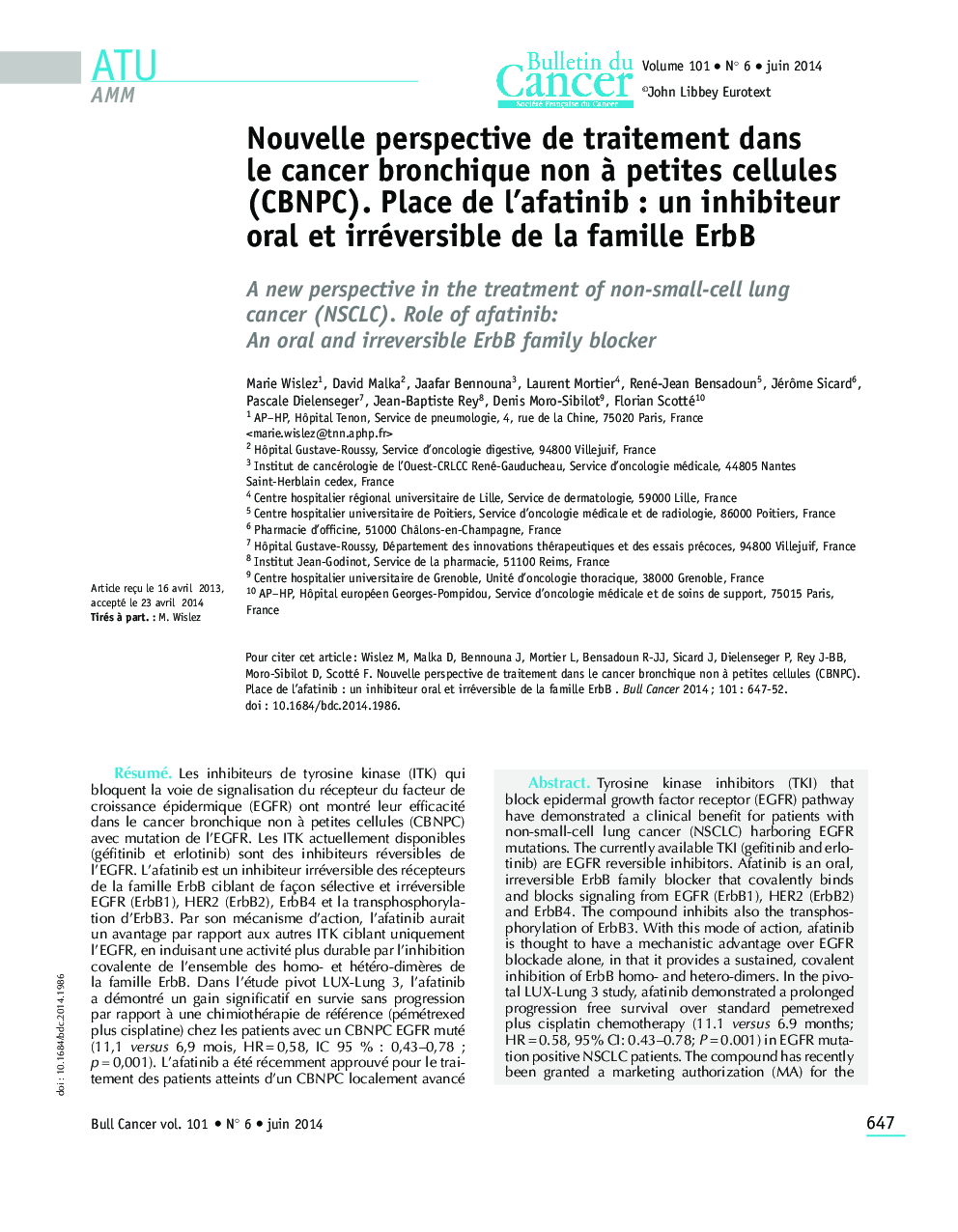| Article ID | Journal | Published Year | Pages | File Type |
|---|---|---|---|---|
| 3978497 | Bulletin du Cancer | 2014 | 6 Pages |
Abstract
Tyrosine kinase inhibitors (TKI) that block epidermal growth factor receptor (EGFR) pathway have demonstrated a clinical benefit for patients with non-small-cell lung cancer (NSCLC) harboring EGFR mutations. The currently available TKI (gefitinib and erlotinib) are EGFR reversible inhibitors. Afatinib is an oral, irreversible ErbB family blocker that covalently binds and blocks signaling from EGFR (ErbB1), HER2 (ErbB2) and ErbB4. The compound inhibits also the transphosphorylation of ErbB3. With this mode of action, afatinib is thought to have a mechanistic advantage over EGFR blockade alone, in that it provides a sustained, covalent inhibition of ErbB homo- and hetero-dimers. In the pivotal LUX-Lung 3 study, afatinib demonstrated a prolonged progression free survival over standard pemetrexed plus cisplatin chemotherapy (11.1 versus 6.9 months; HRÂ =Â 0.58, 95% CI: 0.43-0.78; PÂ =Â 0.001) in EGFR mutation positive NSCLC patients. The compound has recently been granted a marketing authorization (MA) for the treatment of patients with locally advanced or metastatic NSCLC with activating EGFR mutation(s) and EGFR TKI-naive. In this paper are summarized the efficacy and safety data in this indication.
Keywords
Related Topics
Health Sciences
Medicine and Dentistry
Oncology
Authors
Marie Wislez, David Malka, Jaafar Bennouna, Laurent Mortier, René-Jean Bensadoun, Jérôme Sicard, Pascale Dielenseger, Jean-Baptiste Rey, Denis Moro-Sibilot, Florian Scotté,
